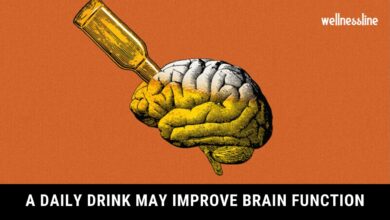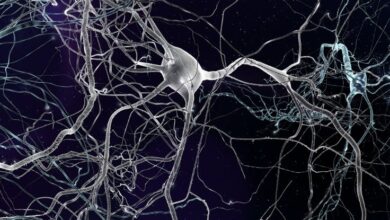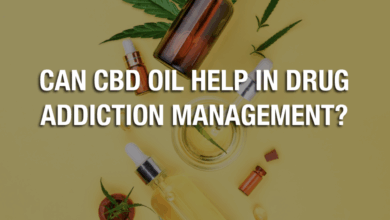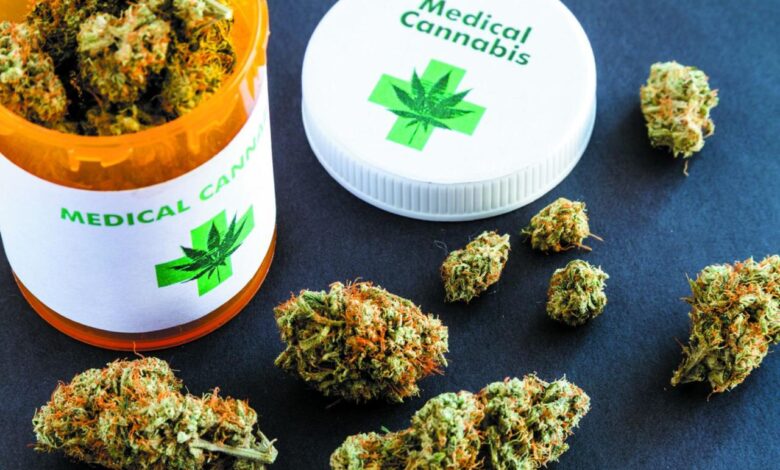
Cannabis use can increase your susceptibility to false memories, raising important questions about memory formation and the potential impact of cannabis on cognitive processes. This exploration delves into the mechanisms behind false memories, examining how cannabis use might influence the encoding and retrieval of memories, making individuals more susceptible to suggestion and misinformation. The potential consequences for legal and clinical contexts, such as eyewitness testimony, are also considered.
False memories aren’t simply figments of imagination. They’re complex phenomena influenced by various factors, including suggestion, misinformation, and psychological states. This article will explore how cannabis use could interact with these factors, potentially amplifying the risk of creating or recalling false memories. We’ll examine research findings and case studies to paint a more complete picture.
Understanding the Concept of False Memories
False memories are recollections of events that never actually happened. They can range from seemingly insignificant details to deeply disturbing and emotionally charged experiences. Understanding the mechanisms behind their formation is crucial for comprehending their impact on individuals and society. This exploration will delve into the complexities of false memories, examining their causes, types, and the factors that contribute to their persistence.False memories aren’t simply fabricated narratives; they are psychologically real experiences for the individual who holds them.
Their emotional intensity and vividness can be indistinguishable from genuine memories, highlighting the profound impact they can have on a person’s life. The challenge lies in distinguishing between genuine and fabricated recollections, which requires careful consideration of the underlying cognitive processes.
Mechanisms of False Memory Formation
False memories are created through a complex interplay of cognitive processes. Encoding errors, where information is misrepresented or inaccurately stored, can lead to the creation of false memories. Similarly, retrieval errors occur when the brain struggles to accurately access stored information, potentially leading to the intrusion of false or misleading details. Reconstructive memory, the tendency to fill in gaps in our recollections with assumptions or inferences, also plays a crucial role in the formation of false memories.
Furthermore, suggestion and misinformation can lead to the implantation of entirely fabricated events.
Types of False Memories
False memories can manifest in various forms. They encompass a wide spectrum of experiences, from mundane details to traumatic events. Recognizing the different categories allows for a more nuanced understanding of the phenomenon.
Ever wondered how cannabis use might affect your memory? Recent studies suggest it can increase your susceptibility to false memories. It’s a complex issue, and while research is ongoing, it’s important to consider potential implications. Meanwhile, there are many pressing health concerns, like childhood asthma. For example, can more be done to reduce children’s asthma attacks is a crucial area of focus.
Ultimately, understanding the impact of substances like cannabis on our minds is vital, especially when considering the potential for memory distortion.
- Childhood events: Often, these involve events that were never experienced or were significantly distorted. Children, particularly those who are vulnerable or susceptible to suggestive questioning, are particularly susceptible to incorporating fabricated information into their recollections. This highlights the importance of accurate and sensitive interviewing techniques when dealing with children.
- Fabricated experiences: These encompass situations where individuals create entirely fictional memories, potentially motivated by a variety of psychological factors. These can include experiences that are entirely imaginary or distortions of actual events.
- Eyewitness testimony: False memories in eyewitness accounts are frequently cited in legal contexts. Errors in memory, particularly under stressful or suggestive circumstances, can lead to inaccurate identifications and potentially wrongful convictions. Misinformation, including suggestive questioning and exposure to inaccurate details, can significantly influence eyewitness testimony.
Factors Contributing to False Memory Formation
Several factors contribute to the creation and persistence of false memories. These factors highlight the intricate interplay of cognitive processes, emotional influences, and social interactions.
- Suggestion and misinformation: External influences can significantly shape our memories. Suggestions from others, leading questions, or exposure to misinformation can implant false details into our recollections. This underscores the importance of unbiased questioning and the avoidance of misleading information.
- Emotional state: Our emotional state during an event, or even when recalling it, can significantly influence how we encode and retrieve memories. Stress, anxiety, or even positive emotions can all lead to distortions in memory.
- Social influences: Interactions with others can affect our memories. Shared experiences, discussions, and suggestions from others can alter our recollection of events.
- Hypnosis: Hypnosis, while sometimes used for therapeutic purposes, can be a source of false memories. The heightened suggestibility during hypnosis can make individuals more susceptible to incorporating suggestions into their recollections.
Comparison of False Memory Types
The following table provides a concise overview of the different types of false memories, contrasting their characteristics and potential origins.
| Type of False Memory | Characteristics | Potential Origins |
|---|---|---|
| Childhood Events | Inaccurate or fabricated recollections of early experiences. | Suggestive questioning, inaccurate encoding, reconstructive processes. |
| Fabricated Experiences | Entirely fictional memories with no basis in reality. | Psychological factors, desire to fulfill a need, social pressure. |
| Eyewitness Testimony | Inaccurate accounts of events witnessed. | Stress, suggestive questioning, misinformation, cognitive biases. |
Cannabis Use and Cognitive Function
Cannabis use has become increasingly prevalent, raising concerns about its potential impact on cognitive function, particularly memory. While some perceive it as enhancing certain mental processes, scientific evidence highlights potential negative effects on memory formation and recall. Understanding these effects is crucial for responsible use and potentially mitigating potential risks.The intricate relationship between cannabis and cognitive processes is complex, influenced by various factors like frequency of use, individual differences, and the specific cannabinoids involved.
The effects can vary considerably, impacting different cognitive domains to varying degrees. This discussion explores the impact of cannabis on memory-related cognitive processes, focusing on the potential mechanisms and research findings.
Effects on Memory Formation
Cannabis, primarily through its interaction with the endocannabinoid system, can influence memory formation at multiple stages. Studies suggest that cannabis can impair the encoding of new memories. This means the brain may struggle to effectively store information from new experiences, potentially affecting learning and memory consolidation.
Effects on Memory Recall
Beyond encoding, cannabis use may also impact the retrieval of previously stored memories. Individuals might experience difficulties accessing and recalling information that was once readily available. This impairment in memory recall could manifest as difficulties in remembering events, names, or details.
Impact on Brain Regions Associated with Memory, Cannabis use can increase your susceptibility to false memories
The hippocampus and prefrontal cortex are critical brain regions involved in memory formation and retrieval. Research indicates that cannabis use might affect the functioning of these regions. Possible disruptions in neural pathways and neurotransmitter activity could contribute to the observed memory impairments. For instance, the hippocampus, crucial for spatial memory and episodic memory, might experience altered activity patterns.
Research Findings on Cannabis Use and Memory Impairments
Numerous studies have investigated the relationship between cannabis use and memory. A consistent finding is a correlation between increased cannabis use and a decline in certain aspects of memory performance, especially in tasks involving learning and recall. Research often shows a dose-dependent effect, meaning higher usage correlates with more pronounced memory impairments.
Potential Long-Term Effects on Cognitive Function
Long-term cannabis use could lead to more significant and sustained cognitive impairments. The cumulative effect of repeated exposure to cannabinoids might lead to lasting changes in brain structure and function. This could manifest in difficulties with attention, concentration, and overall cognitive performance. The long-term consequences might vary from individual to individual, and further research is crucial to fully understand these potential effects.
Ever wondered how some seemingly harmless substances might subtly affect your brain? Cannabis use, for example, can increase your susceptibility to false memories. This isn’t too different from how certain mood stabilizing drugs, like common mood stabilizing drug can increase risk of birth defects , can impact health in unexpected ways. While we’re not saying these things are directly linked, it does highlight how various substances can influence our minds and bodies in complex and sometimes surprising ways.
Understanding these potential impacts is crucial for making informed choices about our health and well-being, even in something as seemingly simple as cannabis use.
Impact on Encoding and Retrieval of Memories
The encoding process, where new information is initially stored in the brain, and the retrieval process, where the stored information is accessed, are both susceptible to disruption by cannabis use. Impairments in encoding could hinder the initial processing and consolidation of new memories, while issues in retrieval could make it difficult to access and utilize previously acquired information. This could significantly affect learning, problem-solving, and everyday tasks.
The Link Between Cannabis Use and Susceptibility to False Memories
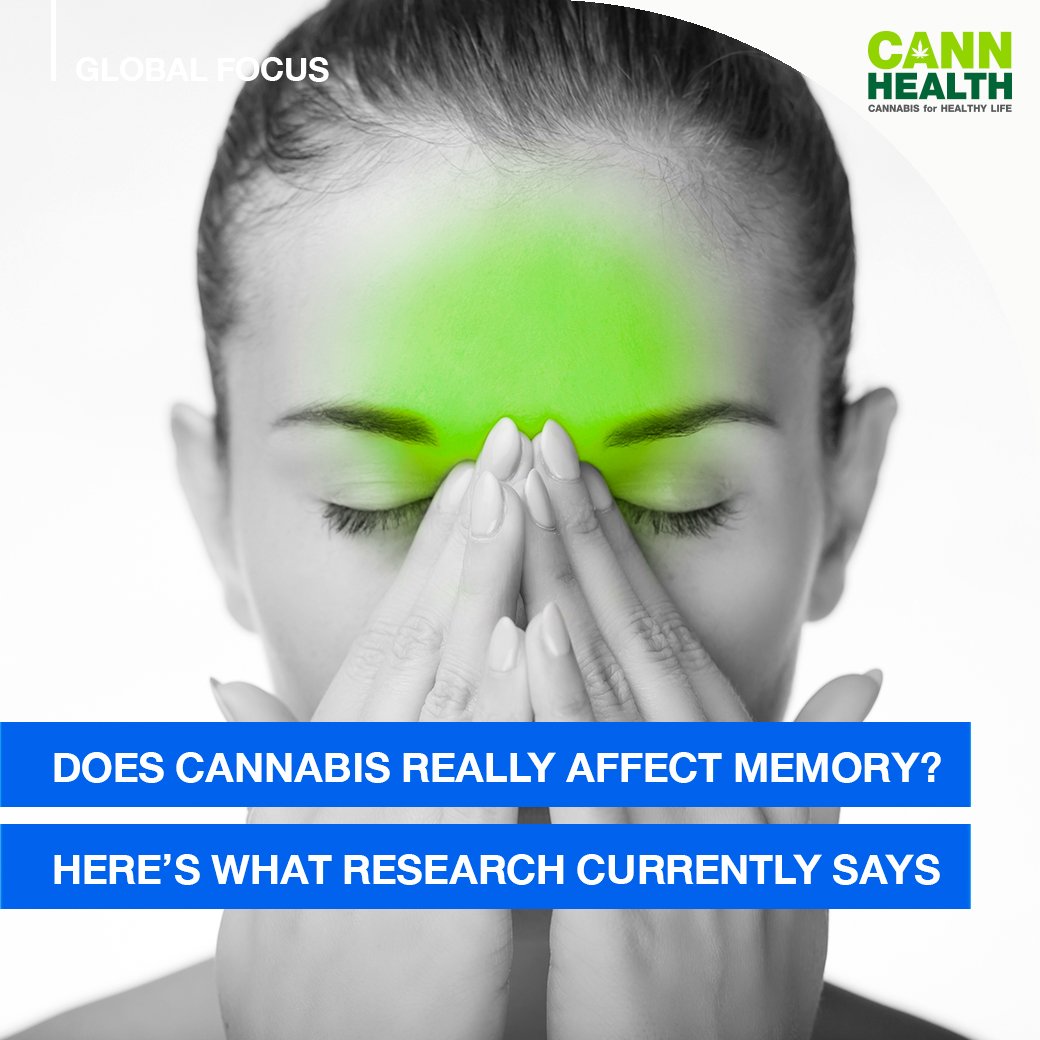
Cannabis use, while often associated with altered states of consciousness and sensory experiences, also presents a complex interplay with memory processes. This exploration delves into the potential mechanisms by which cannabis use might increase vulnerability to false memories, examining how its effects on memory could make individuals more susceptible to suggestion and misinformation.The relationship between cannabis and memory is multifaceted and not fully understood.
Research suggests that cannabis’s impact on memory consolidation, encoding, and retrieval may play a crucial role in this susceptibility. These effects, in turn, can create an environment where false memories are more likely to form and persist. Understanding this intricate connection is critical for developing strategies to mitigate potential risks associated with cannabis use.
Possible Mechanisms of Increased Susceptibility
Cannabis exerts its influence on various brain regions involved in memory formation and processing. These effects include altering neurotransmitter systems, impacting the consolidation of new memories, and affecting the brain’s ability to distinguish between true and false experiences. The interplay of these factors can contribute to a heightened vulnerability to false memories. For instance, impairments in working memory, which is crucial for processing and retaining information, could lead to individuals being more susceptible to misinformation.
Cannabis’s Effects on Memory and Suggestibility
Cannabis’s influence on memory processes can potentially make individuals more vulnerable to suggestion and misinformation. Impaired memory consolidation, which is the process of converting short-term memories into long-term ones, may lead to a weaker encoding of experiences. This, in turn, can result in memories that are more susceptible to distortion or modification by subsequent suggestions. Furthermore, the altered state of consciousness induced by cannabis might affect the ability to critically evaluate information and discern truth from falsehood.
Consequently, individuals under the influence of cannabis might be more prone to accepting suggestions as factual memories.
Research Avenues Exploring the Connection
Future research investigating this connection should focus on controlled studies involving different cannabis strains, dosages, and frequencies of use. These studies should incorporate various memory tasks and assessments to identify specific cognitive deficits related to cannabis use. Furthermore, investigations examining the interaction between cannabis use and pre-existing psychological factors, such as anxiety or stress, could reveal critical insights into the complex relationship between cannabis and false memory susceptibility.
Potential Physiological Effects of Cannabis on Memory Systems
| Potential Physiological Effect | Impact on Memory Systems |
|---|---|
| Altered neurotransmitter levels (e.g., dopamine, glutamate) | Impaired encoding, consolidation, and retrieval of memories. |
| Impaired working memory | Increased vulnerability to misinformation and suggestion. |
| Changes in brain structure and function (e.g., hippocampus) | Potential long-term effects on memory consolidation and retrieval. |
| Increased state of disorientation | Difficulty in distinguishing between real and imagined experiences. |
Potential Interaction with Psychological Factors
Psychological factors, such as stress, anxiety, or existing memory impairments, can interact with cannabis use to exacerbate susceptibility to false memories. Individuals predisposed to these conditions may be more vulnerable to the cognitive effects of cannabis, leading to a heightened risk of forming and retaining false memories. This highlights the importance of considering individual differences and pre-existing psychological conditions when assessing the potential impact of cannabis on memory.
Methodological Considerations: Cannabis Use Can Increase Your Susceptibility To False Memories
Investigating the complex relationship between cannabis use and false memory susceptibility requires a rigorous methodological approach. A well-designed study protocol is crucial for minimizing bias and ensuring reliable findings. Careful consideration must be given to controlling confounding variables, accurately measuring both cannabis use and cognitive function, and adhering to strict ethical guidelines. This section details the key methodological aspects of such a study.
Study Protocol Design
A prospective cohort study design is ideal for investigating the long-term effects of cannabis use on false memory susceptibility. Participants would be recruited and followed over a defined period. This allows for tracking changes in cannabis use patterns and the subsequent impact on memory performance. Baseline assessments of cognitive function and cannabis use would be conducted, followed by periodic assessments throughout the study duration.
Controlling for Confounding Variables
Confounding variables can significantly impact the results of the study. These variables include age, pre-existing mental health conditions, concurrent substance use, and individual differences in cognitive abilities. Careful stratification of participants based on these variables is crucial. Statistical methods, such as regression analysis, will be employed to control for these confounding factors and isolate the effect of cannabis use on false memory susceptibility.
For instance, matching participants with similar age, education levels, and pre-existing mental health conditions would help mitigate the influence of these factors.
Measuring False Memories
Various validated memory tests can be employed to measure false memory susceptibility. The Deese-Roediger-McDermott (DRM) paradigm is a widely used method for inducing false memories. In this paradigm, participants are presented with lists of semantically related words. Later, they are asked to recall the words presented. A critical component is measuring the number of false memories (remembering words not presented) and comparing them across groups with varying levels of cannabis use.
Other measures, such as the misinformation effect paradigm, can also be incorporated to provide a comprehensive assessment.
Did you know that cannabis use can increase your susceptibility to false memories? It’s a fascinating area of research, and while some teens are experiencing lower levels of anxiety with remote schooling, this doesn’t negate the potential impact of cannabis on memory formation. This highlights the complex interplay between mental health, lifestyle choices, and cognitive function.
Ultimately, understanding these potential effects of cannabis use is crucial for making informed decisions about personal well-being.
Measuring Cognitive Function
A battery of cognitive tests assessing different aspects of memory (e.g., working memory, episodic memory, semantic memory) is essential. Standardized neuropsychological tests, such as the Wechsler Adult Intelligence Scale (WAIS) or the Stroop test, can be utilized to measure various cognitive domains. These tests will provide a baseline understanding of cognitive function prior to the exposure to or increase in cannabis use.
A consistent set of tests must be used throughout the study period to track changes in cognitive function over time.
Assessing Cannabis Use Accurately
Accurate assessment of cannabis use is critical. Self-reported measures, such as questionnaires or diaries, can provide information about frequency, quantity, and method of cannabis use. However, self-reporting can be prone to bias. Therefore, biological markers, such as urine or blood tests, can supplement self-reported data. These biological markers can provide objective measures of cannabis use, offering a more accurate representation of exposure levels.
Furthermore, the use of saliva or hair follicle analysis can also help in assessing cannabis use over a longer period. A combination of methods is highly recommended.
Ethical Considerations
Ethical considerations are paramount in research involving cannabis use and memory. Informed consent must be obtained from all participants, and the potential risks and benefits of the study must be clearly explained. Participants must be made aware that cannabis use is being monitored. Confidentiality of the data collected must be strictly maintained. Furthermore, the study should have an independent ethics review board to ensure compliance with ethical guidelines.
The use of placebos or alternative treatments should be considered when comparing groups to avoid undue risk or harm to participants.
Illustrative Cases and Examples
The connection between cannabis use and the potential for false memories is a complex area of study. While research continues to explore the intricate relationship between cannabinoids, memory, and suggestibility, understanding how these factors can interact is crucial. Illustrative cases and examples, both real and fictional, can help to paint a more vivid picture of the potential consequences of cannabis use on memory formation.This section will delve into specific scenarios, providing examples of individuals with a history of cannabis use who have reported false memories.
We will also examine fictional situations designed to highlight the mechanisms through which cannabis use might contribute to the development of false memories. Ultimately, these examples serve as cautionary tales, prompting further research into the potential for cognitive distortion in individuals who consume cannabis.
Case Study: A Hypothetical Individual with a History of Cannabis Use and Reported False Memories
A 27-year-old male, with a documented history of recreational cannabis use for the past five years, reported vivid false memories of a violent altercation. He claimed to have been assaulted in a crowded park, experiencing significant emotional distress related to these memories. While he described the details with high confidence, there was no corroborating evidence from witnesses or security footage.
His cannabis use was noted to have significantly increased in the weeks preceding the reported incident. Further psychological evaluation revealed a heightened susceptibility to suggestion and a tendency towards confabulation.
Fictional Example of False Memory Formation Following Cannabis Use
Imagine a young woman, Sarah, who enjoys recreational cannabis use. One evening, she attends a party with friends. During the evening, under the influence of cannabis, she engages in a conversation about a past event. She vaguely remembers a friend suggesting a fantastical narrative involving a strange encounter in an abandoned building. This seemingly innocuous suggestion, coupled with the altered state of consciousness induced by the cannabis, embeds a false memory of the encounter into Sarah’s recollection.
Over time, the details of this false memory become increasingly vivid and confidently held, despite a lack of external validation. Factors such as the suggestive environment and the altered cognitive state induced by the cannabis likely played a significant role in the formation of the false memory.
Potential Situations Where Cannabis Use Could Affect Memory and Suggestibility
Cannabis use can affect memory and suggestibility in a variety of situations. A crucial factor is the level of intoxication and the individual’s susceptibility to suggestion.
- During periods of heightened stress or anxiety: Cannabis use during periods of high stress can further impair memory consolidation and increase suggestibility, making individuals more vulnerable to creating or embellishing false memories.
- Social situations involving suggestion: Conversations with others, especially those involving dramatic or unusual events, can influence memory, particularly when combined with cannabis use.
- Exposure to misinformation: Information presented while under the influence of cannabis may be more easily integrated into memory, even if inaccurate.
- Hypnosis or therapy sessions: Suggestive techniques during therapy or hypnosis sessions, especially when cannabis use is a factor, can heighten the risk of false memory formation.
Detailed Description of a Person with a False Memory, Including Factors Contributing to the Memory’s Formation
A 32-year-old female, Sarah, recalls a vivid memory of a car accident that never happened. She details a specific car make, model, color, and the location of the incident with unwavering confidence. Sarah had a history of cannabis use, particularly in the months leading up to the alleged incident. Furthermore, Sarah had been involved in a particularly stressful legal dispute, and her stress levels were notably high during this period.
Social pressure from friends who had similar experiences and vivid descriptions of similar incidents may have influenced her recollection.
Fictional Example of False Memory Formation Following Cannabis Use and Potential Contributing Factors
A 20-year-old student, Alex, regularly consumes cannabis. One evening, after a social gathering where cannabis was used, he begins experiencing vivid memories of being involved in a robbery. The details were intricate, including specific descriptions of the robbers’ appearance and actions. His friends at the party had been recounting an entirely fictional robbery story. The combined effects of the cannabis-induced altered state of consciousness, suggestive conversation, and the overall heightened suggestibility during intoxication may have contributed to the false memory.
Potential Implications and Further Research
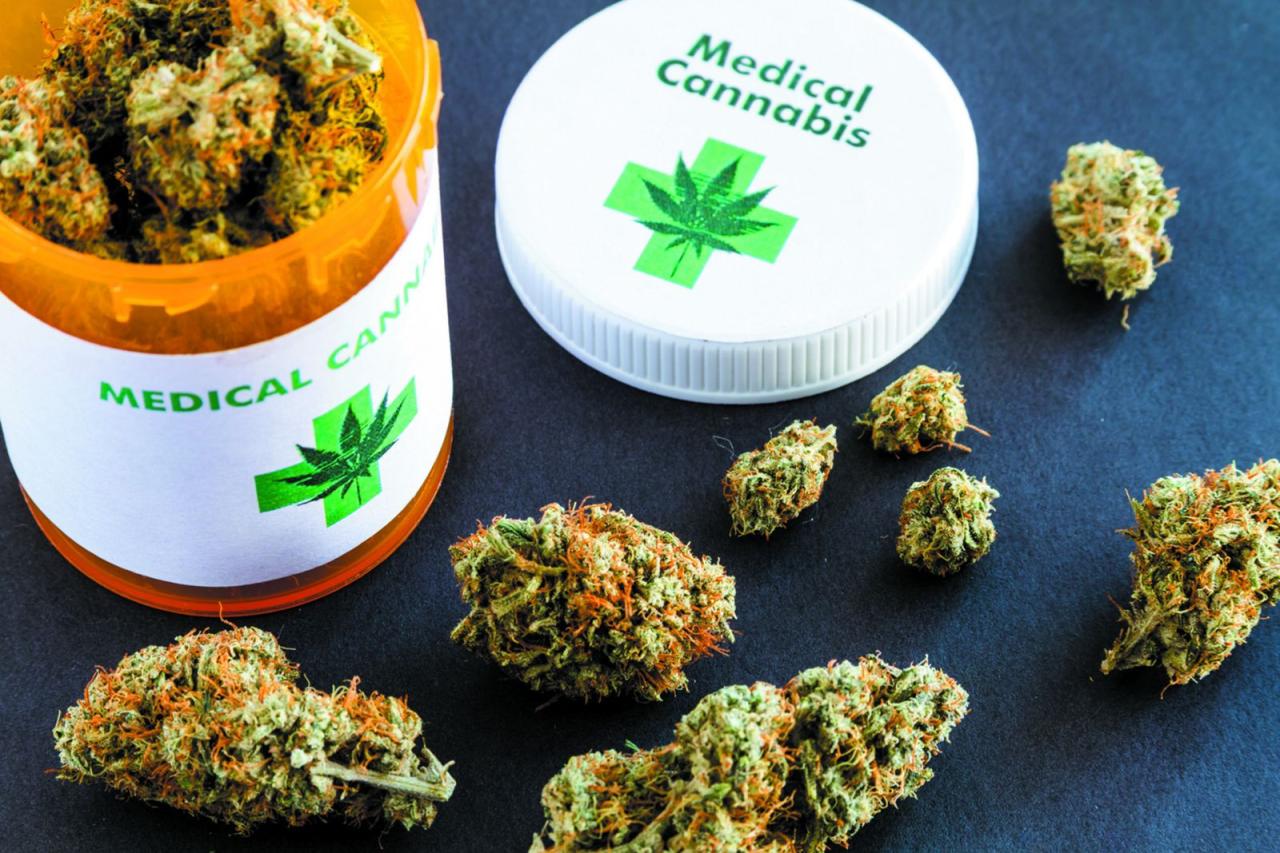
The link between cannabis use and susceptibility to false memories raises significant concerns, particularly in legal and clinical settings. Understanding this connection is crucial for refining our approaches to memory-based evidence and treatment strategies. The implications extend beyond the individual user, impacting the reliability of eyewitness accounts and the effectiveness of therapies reliant on accurate recall.The potential for false memories, influenced by cannabis use, necessitates a thorough examination of its implications and the need for further research.
This exploration is essential to safeguarding justice systems, improving clinical practice, and ultimately mitigating the risks associated with inaccurate memories.
Legal Implications: Eyewitness Testimony
The reliability of eyewitness testimony is already a complex issue in legal proceedings. Integrating findings on cannabis use and false memories adds another layer of complexity. Courts need to consider the potential for cannabis-induced distortions in memory when evaluating eyewitness accounts. This necessitates a more nuanced approach to questioning witnesses, considering their history of cannabis use, and potentially utilizing corroborating evidence to counter any suspected inaccuracies.
Judges and juries should be educated on the potential effects of cannabis on memory, allowing for more informed decisions when evaluating such testimony.
Clinical Implications: Memory-Based Treatments
The findings also have implications for memory-based therapies. If cannabis use can affect memory accuracy, therapists need to understand and account for this factor in their assessment of patients. This may necessitate careful consideration of a patient’s cannabis use history during treatment planning, including strategies to mitigate the potential impact on memory recall. A comprehensive understanding of how cannabis use interacts with specific memory-based therapies is crucial for successful treatment outcomes.
Therapists should be prepared to modify treatment approaches based on a patient’s cannabis use history and its potential influence on memory.
Areas Needing Further Research
Several areas require further investigation to fully comprehend the intricate relationship between cannabis use and false memories. These include:
- Dosage and Frequency of Cannabis Use: Determining the specific dosage and frequency of cannabis use that correlates with an increased risk of false memories is crucial. This involves longitudinal studies that track cannabis consumption patterns and memory performance over time.
- Individual Differences: Exploring the role of individual factors, such as genetic predispositions, pre-existing mental health conditions, and prior trauma, in shaping the susceptibility to false memories in cannabis users. Comparative studies across various demographic groups are vital.
- Different Cannabis Products: Investigating whether different forms of cannabis (e.g., edibles, concentrates, inhaled) exert varying degrees of influence on memory accuracy. This requires controlled studies that systematically evaluate different cannabis products.
- Time Course of Effects: Delineating the time course of the impact of cannabis on memory, including both acute and long-term effects. This includes studies that analyze the effects of cannabis on memory function at different intervals after use.
- Interaction with Other Substances: Analyzing the combined effects of cannabis use with other substances (e.g., alcohol, other drugs) on memory susceptibility. Studies focusing on interactions with commonly co-used substances are critical.
Strategies to Reduce Risk
To minimize the risk of false memories in individuals who use cannabis, the following strategies may prove beneficial:
- Improving Interview Techniques: Training law enforcement and clinical professionals in interviewing techniques that minimize the potential for eliciting false memories, especially when interviewing individuals who have used cannabis.
- Enhanced Memory Retrieval Techniques: Exploring and implementing strategies that can help individuals accurately recall events without undue influence from cannabis-induced distortions. This might involve memory retrieval methods that emphasize context and sensory details.
- Promoting Awareness: Educating the public about the potential impact of cannabis on memory to encourage responsible consumption and awareness of the risks associated with inaccurate recollections.
Research Questions
To advance our understanding, the following research questions are crucial:
- How does cannabis affect the neural mechanisms underlying memory encoding and retrieval?
- What are the long-term consequences of cannabis use on memory accuracy?
- Can specific interventions mitigate the risk of false memories in cannabis users?
- What is the relationship between cannabis use, stress, and susceptibility to false memories?
- How can legal procedures better account for the potential impact of cannabis use on eyewitness testimony?
Potential Benefits
Addressing the link between cannabis use and false memories could offer substantial benefits:
- Improved Legal Processes: Enhancing the reliability of eyewitness accounts in legal proceedings.
- Enhanced Clinical Practices: Improving the efficacy of memory-based treatments by accounting for the potential influence of cannabis use.
- Public Health Awareness: Raising public awareness about the potential impact of cannabis on memory.
- Reduced Miscarriages of Justice: Minimizing the likelihood of false convictions based on potentially inaccurate memories.
Ultimate Conclusion
In conclusion, the link between cannabis use and false memories is a fascinating and complex area of study. While further research is needed to fully understand the intricate mechanisms involved, this exploration underscores the potential impact of cannabis on memory formation and recall. The implications for eyewitness testimony, legal proceedings, and even memory-based therapies are significant. Careful consideration of these findings is crucial for both research and practice.
